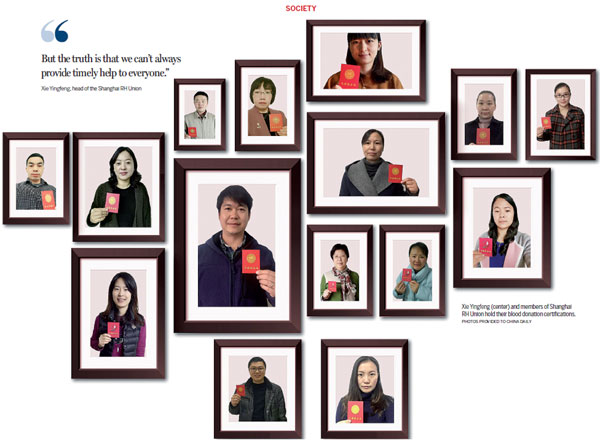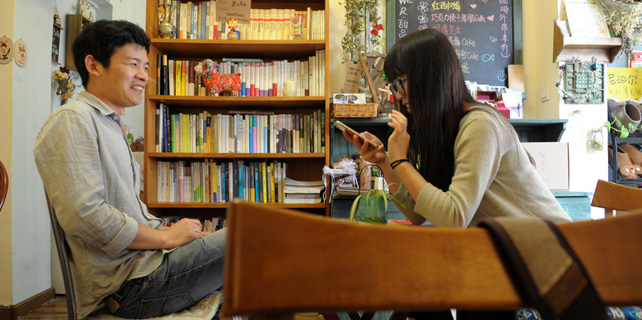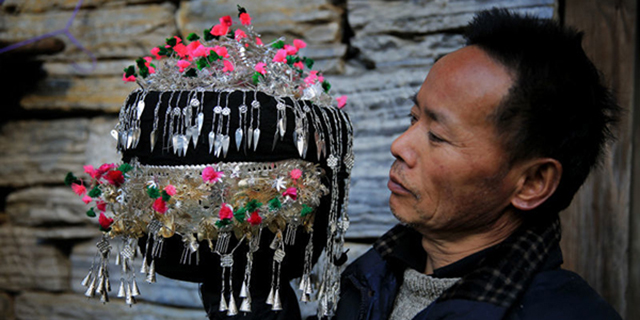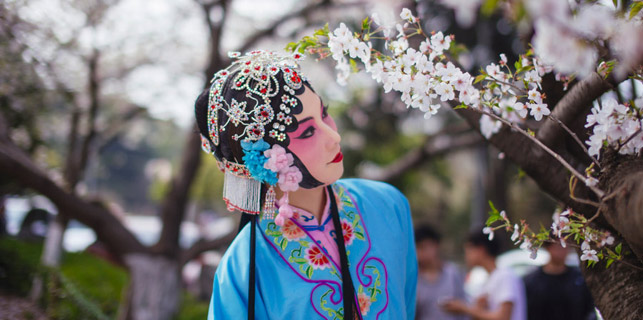Blood, sweat and tears

Xie Yingfeng, the head of Shanghai RH Union, talks about his passion and experiences in managing donation efforts for a very rare type of blood in China that only 3 out of 1,000 people have
Having become jaded with the pursuit of material wealth, Xie Yingfeng recently quit his job as a construction materials salesman to focus on helping those who are in the same shoes as him.
The blood that courses through Xie's veins is Rh-negative. In China, only three out of every 1,000 people have such blood, which has been dubbed "panda blood" because of its rarity.
There are four blood types in humans: A, B, AB, and O. Each blood type also has a Rhesus factor which makes it either Rh positive (Rh+) or Rh negative (Rh-). Generally, Rh-negative patients can only receive Rh-negative blood. Rh-positive patients, on the other hand, can receive blood from Rh positive and Rh negative donors.
According to Xie, many people do not know their blood factor until something unfortunate happens and they require a blood transfusion, which makes it more difficult to find a donor.
The 38-year-old has for the past 12 years been a member of Shanghai RH Union, a non-profit organization comprising volunteers who all have this rare blood type. Every year, the organization helps around 40 people who require such blood during a medical emergency.
Because the process of coordinating blood donations is a tedious one - he could receive as many as 200 phone calls a day from patients' families, fellow volunteers and blood donors - Xie decided to quit his full-time job to focus on helping others.
"It's hard for me to do a 9-5 office job as my phone is constantly ringing," said Xie, who is today the head of the Shanghai RH Union.
Xie is not being paid by the union and he currently has no concrete plans on how to put bread on the table, though he is considering selling food unique to his hometown in Urumqi, Xinjiang Uygur autonomous region, on social media platforms.
A chance discovery
Xie first found out he has Rh-negative blood in 2005 when he and his wife went to a hospital in Urumqi for a pre-marital health check-up.
Upon receiving the results of his blood test, Xie realized a group of doctors and nurses were elbowing their way through the crowd to have a look at the report. The doctor told Xie to undergo another test.
When two blood tests showed the same findings, the doctor then suggested that Xie get a third opinion at the largest hospital in Xinjiang. The result was the same.
Because Xie didn't have a computer at home, his wife looked up information about the blood type at her office.
"Take good care of yourself and don't get into fights. If you're injured, it's going to be difficult to find people to donate blood for you," was what Xie's wife jokingly told him.
Xie has never required a blood transfusion. Instead, he has since that day donated 10,000 cc of blood, more than twice the total amount in an adult.
He made his first donation not long after he got married, heeding the call of a local newspaper to help a pregnant woman who was in critical condition during labor. Although more than 30 people came forward to help, Xie was the only suitable donor as they both have AB negative blood, a type so rare only 0.1 percent of Asians have it.
Eager to save a life, Xie rolled up his sleeves and told the nurse to "draw as much as you want". He was told that a person can only donate a maximum of 400 cc at one time.
"If I were not there, there would have been nobody who could help," said Xie, who added that it was this very incident that compelled him to do more to help others.
He soon joined China Rh Union, a Beijing-based non-profit organization that currently has more than 50,000 Rh-negative blood donors. When he moved to Shanghai in 2007, Xie became the regional head of the city's union.
The role of regional heads is to collect information on patients who need rare blood, verify the information, disseminate the message to volunteers and look for donors. While many people are eager to help, not everyone is suitable, and it is up to Xie to find the eligible candidate.
For example, a person cannot donate blood within a week after consuming medication. Women who are menstruating or are breastfeeding cannot do so either. In addition, people can only donate blood once every six months.
















